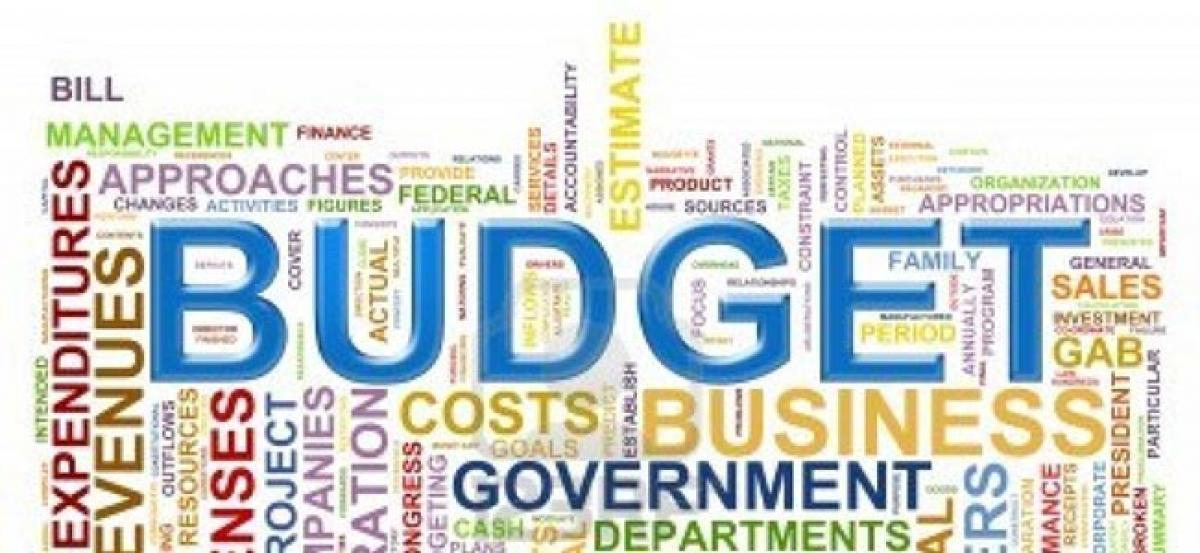Live
- KCR to kickstart his bus yatra from April 22
- EC observers review measures taken in Chevella LS segment
- Guntur: Kilari, Nandigam, Tenneti file nominations
- Govt releases Rs 50 cr for clearing weavers’ dues
- Vijayawada: Two-day international meet held on New Media
- BRS MLA Prakash Goud jumps ship to Cong, more to follow?
- Upbeat TDP cadres focus on one lakh majority for Naidu in Kuppam
- Bhatti knocks on doors of CPM for support in LS polls
- Rajamahendravaram: Purandeswari takes part in huge rally, files nomination
- Inter results likely to be released on Apr 22
Just In

Budgets have become a routine annual ritual with Finance Minister making some proposals, Parliament witnessing uproar and budget passed amidst noisy interruptions.
Budgets have become a routine annual ritual with Finance Minister making some proposals, Parliament witnessing uproar and budget passed amidst noisy interruptions. The nation remains a spectator to the sad state of affairs that transformed such an important fiscal exercise into a mere formality executed through brute majority.
The reports of Comptroller and Auditor General (CAG) repeatedly pointed out through performance appraisal reports that the expenditure is often crowded in the last quarter of the financial year. There are innumerable instances of allocations not matched by actual spending. The revised and final estimates are at great variance with the budget estimates.
Such scant regard to estimates approved by Parliament is unbecoming of a democracy though financial exigencies cannot be ruled out. Incrementalism dominates the budget making. Comparative study of budgets of previous years indicates the lack of freshness in assessing the fiscal needs of different government departments and programmes. Governments often make exaggerated estimates of revenue collections and conservative account of expenditure commitments resulting in actuals failing to reflect the budget priorities.
Diversion of funds allocated for a purpose to other schemes and programmes is often done with impunity. In the process, certain marginalised departments and sections have to bear the brunt. The outlays have to match the outcomes. Pilferage and leakages in public spending is the reason for inadequate outcomes despite impressive outlays. Deliberations on budget proposals for various departments in Parliament are marked by clear political stance rather than appreciation of the real merits and demerits in the proposals.
Parliamentary scrutiny is vital for authorising executive to spend. Government bulldozes any criticism and the opposition refuses to accept any government rationale. Meanwhile, anomalies and paradoxes in public finances still remain. While the tax to GDP ratio in India is one of the lowest in the world, the excessive taxation on those who pay the taxes disincentivises tax compliance and encourages tax evasion. Budgets fail to expand the tax net. The indirect taxation that impacts common man is higher than the direct taxes the wealthy pay.
In Indian fiscal federalism, the development functions are largely handled by the state governments while the Centre retains most of the revenue sources. The fiscal transfers to the states need to be radically restructured to make the budget process meaningful. Myriad tax concisions provide enough room for manipulation and litigation. The Economic Survey presented to Parliament by the Government of India is the diagnosis of economic ills plaguing the country.
But, the budget that is supposed to reflect this diagnosis often fails to do so. Petroleum prices, rail tariff, user charges and pricing of other products and services are delinked from the budget. Appropriation and reappropriation of fiscal resources further erode the sanctity of this annual exercise. The demise of planning and the steady withdrawal of State from the economy in the post-liberalisation period raise fundamental questions on the sanctity for the budget.
This time, mid-year roll out of GST and the demonetisation uncertainties make the budget process further more unpredictable. The time has come to seriously take stock of the role of budget and restore its primacy as a socio-economic instrument to address the nation’s challenges.

© 2024 Hyderabad Media House Limited/The Hans India. All rights reserved. Powered by hocalwire.com







